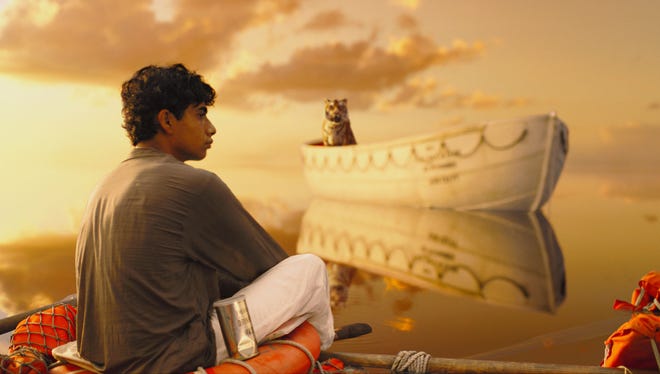
Pictured here dishes which are NOT Indian
I guess writing about Smosh’s Reddit videos has become a recurring thing for me.
This time, I am thinking of a particular AITA story about a woman who refused Indian foods and got called a racist for it. While many Smosh viewers don’t think she is one, they believe she is the asshole. But, a handful of people (they are more prominent in Smosh’s Facebook comment section) are on her side.
And those people are in the wrong. Let me elaborate.
Yes, the OP does explicitly say she cannot stand spicy foods and her Indian coworker has known that from the very beginning. But, most of her defenders are only focused on those two details and ignoring the rest.
First (and it is a detail even many of her detractors forget about), it was at her Indian coworker’s private dinner party. Unless there is a risk getting fired, why would you willingly attend it, knowing you cannot eat anything there? If networking is really important, why don’t you create your own party, where you have complete control of the feast?
Second, her coworker was actually fine about the rejections; it became a problem when she offered OP one particular dish, which she also refused. When explicitly told it was a dessert, the OP insisted it was spicy because it had reddish colour. She later found out the dessert was called Jalebi and, instead of reading the goddamn recipe, she still focused on its appearance, still convinced the non-spicy food was spicy.
And that’s the reason why she got flamed: shunning an entire cuisine because of a preconceived belief and clinging onto it even after proven wrong, acting like she knows everything about a cuisine she has little or no experiences with. It is not because she refused, it is because of the reason why.
I don’t know why people miss those two details. Maybe they ignore them intentionally, to feel good about their own food pickiness. Maybe they simply have poor listening comprehension (as Smosh always reads the reddit stories out loud and, apart from the reddit posts’ titles, it never shows the texts on the screen).
Some of the OP’s defenders do pay attention to the details. But, they don’t think the details are damning.
Some of them openly admit they are picky eaters themselves. I do agree we should never coerce anyone into eating anything; in fact, it can backfire, causing people to develop food trauma.
But, at the same time, I refuse to pretend pickiness is a good thing. I refuse to pretend having limited tastebuds is a strength and something to be proud of. I refuse to pretend having limited sources of nutrients and homogenous gut microbiome are good for our health in the long run.
A handful of people argue the OP may be autistic herself; I also notice something similar when Smosh read the reddit story about bringing ranch to a mom and pop eastern European restaurant…. and the OP – an American – dismisses the restaurant as not “normal” for not having ranch.
I am not diagnosed with autism (even though a handful believe I am autistic, simply on the basis that I am “too different” (their condescending tone when uttering the word “autistic” is very telling)) and I am certainly not an expert on it. But, using autism to excuse cultural close-mindedness doesn’t sit well with me.
And, of course, there are those stereotype believers, who insist stereotypes are reliable sources of facts and are not products of prejudices and overtly-simplistic thinking. When I reminded them the reddit story involves a dessert, one person said Asians/brown people have no one but ourselves to blame, as we love to brag about how spicy our foods are.
I told him he should had used his common sense, as we clearly referred to our savoury, non-dessert dishes. He doubled down, insisting that many, if not most, of our desserts are indeed spicy. He never provided evidences to back his claim up, he even never claimed about trying the foods himself. He just said it was dishonest to not believe his claim and he stopped making comments afterwards.
Do spicy desserts exist? Definitely. But, are all Asian/brown people desserts spicy? No, definitely not.
Like that person, I am not from India, and I know very little about Indian cuisine. But, also like that person, I also have a goddamn internet access.
Wikipedia has an article listing all the most well-known Indian sweets. Sugar syrup, milk and clarified butter are the recurring ingredients in many of them, not all of them use spices; when they do, they use cardamoms and saffron, ones which do not yield hot flavour in dishes. You can also google search them, read their recipes on other websites and I guarantee the ingredients are similar as the ones stated in Wikipedia.
When I googled “spicy Indian desserts”, the results were similar to ones shown in Wikipedia. When I googled “hot Indian desserts”, the search engine thought the word “hot” referred to the temperature, not flavour. In this case, even Google refused to affirm my hypothetical preconceived belief.
I also wonder if this problem is linguistic.
In the English language, the words spicy and hot are used interchangeably and it may have compelled monolingual English-speakers to mistake all spices as hot. I don’t know if it just another case of stereotyping or the English language being confusing. I believe it is both.
Personally, I believe the redditor is neither a racist nor a xenophobe. But, I do think she is close-minded, a proud bubble dweller who refuses to pop it when given the opportunity to.
And she will remain one, as long as people keep coddling her mindset.
.
.
.
.
.
Donate to this deadbeat, preachy blogger on Patreon.








